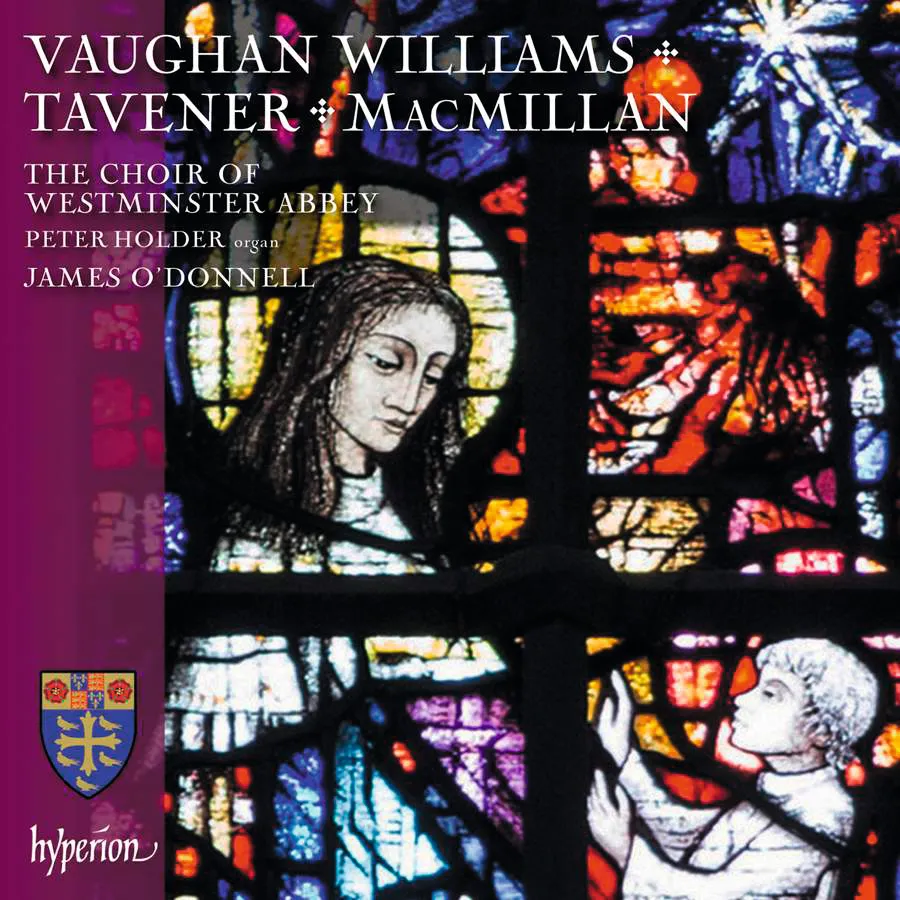
MacMillan • Tavener • Vaughan Williams James MacMillan: Mass of St Edward the Confessor etc; Tavener: Magnificat and Nunc Dimittis (Collegium Regale) etc; Vaughan Williams: Mass in G minor etc The Choir of Westminster Abbey/James O’Donnell Hyperion CDA68420 69:15 mins
James O’Donnell left Westminster Abbey after 20 years as director of music to take a position at Yale. This, apparently his last recording at the Abbey, sustains the remarkably high standards he and his choir consistently achieved during his tenure. A special sense of intimate devotion suffuses the opening Kyrie of Vaughan Williams’s Mass, the singing restrained but immaculately controlled technically, the four voice-parts interleaving sensitively with one another. Where some choirs go hell-for-leather in the expanded eight-part writing of the Gloria, O’Donnell is expressively more nuanced, allowing his excellent solo singers to emerge in clearer profile.
James MacMillan’s Mass of St Edward the Confessor also uses eight-part writing, but generally weaves more delicate textures. The Westminster trebles are wonderfully vibrant in the jaunty rhythms of the Gloria, attacking its vaulting intervals with alacrity. Of the three shorter MacMillan pieces A Special Appeal deserves particular mention. Written to commemorate the Catholic prelate Óscar Romero, assassinated in San Salvador in 1980, its searing drama elicits outstandingly empathetic singing, powerfully complemented by Peter Holder’s account of the volcanic organ part. The Tavener pieces show the choir adept in the tricky chant inflections of the Magnificat, and immaculate in sustaining pitch and concentration across the contemplative paragraphs of Song for Athene. In all, a fine and unmissable farewell by O’Donnell.
Terry Blain
